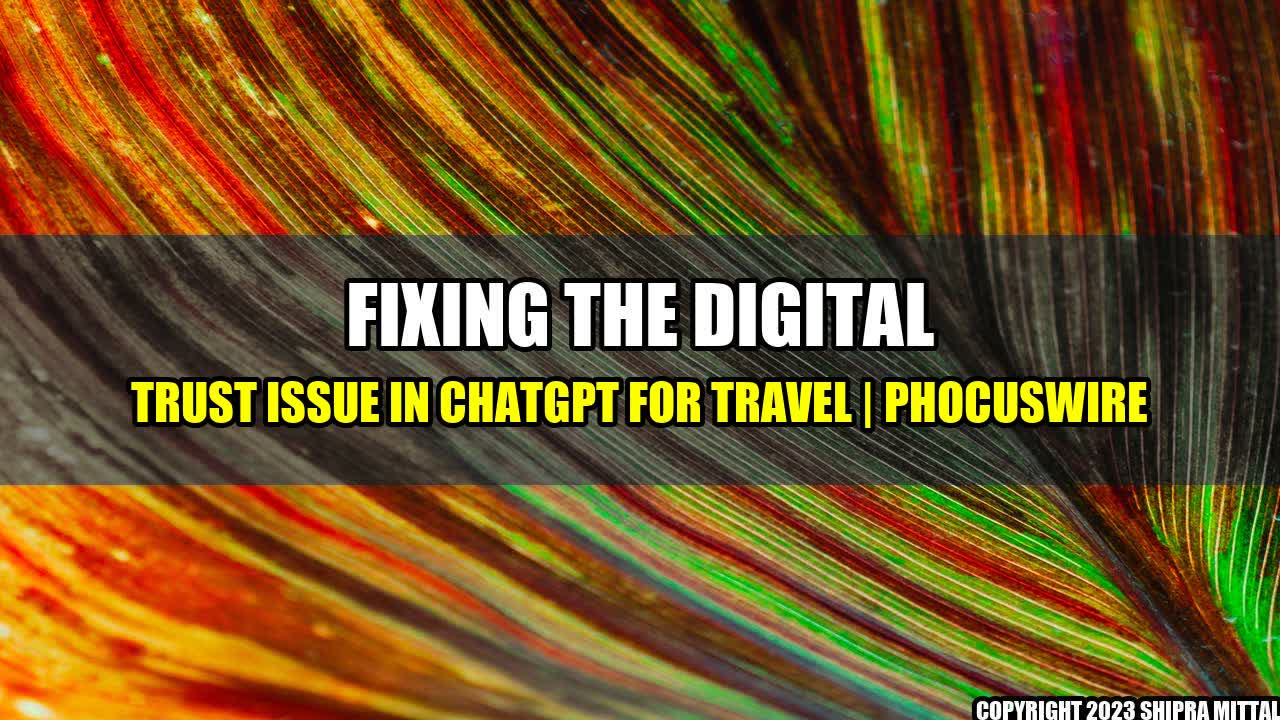The Importance of Digital Trust in Travel
Imagine being in a foreign country without any knowledge of their language or customs. You need to get to your hotel, but you don't know which transportation to take. In moments like these, having a digital assistant to guide you through your travels can make all the difference. However, with so many travel chatbots on the market, how do you know which one to trust?
Therein lies the issue of digital trust in travel. As travelers increasingly rely on chatbots like ChatGPT, it's important to ensure that their personal information and queries are secure, and that they can trust the information they receive from digital assistants.

Akash Mittal Tech Article
Share on Twitter Share on LinkedIn